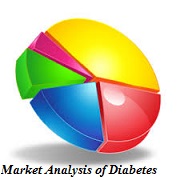
Parijat De
Sandwell & West Birmingham NHS Trust, UK
Title: HbA1c screening for new onset diabetes following acute coronary syndrome: Is it a worthwhile test in clinical practice?
Biography
Biography: Parijat De
Abstract
Background: Disturbances of glucose metabolism and diabetes are widely prevalent in acute coronary syndrome (ACS) and relate to adverse outcome, irrespective of presence or absence of previously diagnosed diabetes. The aim was to use HbA1c to screen for degrees of glucose intolerance amongst non-diabetic patients admitted to our cardiology ward with ACS.
Method: We developed a protocol incorporating a random HbA1c diagnostic blood test on day 2 or 3 post admission for every patient admitted with ACS without known diabetes. All HbA1c results were sent directly through to Diabetes Department via Think Glucose (TG) electronic system on iCM. As per protocol, patients were subsequently invited for a repeat HbA1c at 2
weeks, and if indeterminate result, for an oral glucose tolerance test (OGTT) at 3 months. Baseline characteristics and severity of ACS was recorded.
Results: We screened 399 patients over a 1-year period (June 2014 – June 2015). The mean age was 65±14 years, 268 (67%) were male, 290 (73%) were Caucasian, 95 (24%) were South-Asian and 14 (4%) were Afro-Caribbean ethnicity. Of all patients, 57 (14.3%) were found to be pre-diabetic, 43 (10.8%) diabetic, 6 (1.5%) died and 22 (5.5%) did not attend follow-up. Of all baseline contributory factors, there were significantly more patients who were South Asian in the new diabetes group compared to the normal group (42% Vs 20%; p=0.003). However, there was no difference in new glycaemia detection rates in
patients with more severe ACS, or those requiring coronary intervention or urgent cardiac surgery.
Summary: This screening method has managed to accurately estimate new onset abnormal glycaemia in high-risk post ACS patients. Patients of South Asian ethnicity presenting with ACS are at highest risk of developing diabetes. All new diabetes patients receive counselling about their diagnosis and future cardiovascular risks, management plan for their GP and are enrolled into our structured diabetes education programme.

